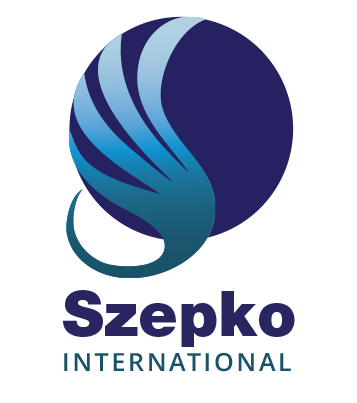Featured Case Studies
Following are examples of a few case studies that demonstrate the success with which Szepko International can bring to an organization.
The Client: U.S. American CEO (male) of a multi-billion-dollar enterprise in Tokyo, Japan. He needed guidance and assistance around connecting better with his senior staff members, most of whom were Japanese, and understanding how his self-described, “aggressive U.S. American behavior” was “getting in the way” of his basic understanding of Japanese culture – and thereby affecting how he was being perceived by his staff at all levels.
Process: Together we explored his baseline style and created a blend that would serve him well. I “shadowed” him on occasion to discuss how audience members were responding to his talks. He found this extremely useful. Over time, he discovered he could blend and exhibit the best of the finely-honed leadership skills which had worked for him in his previous position in the U.S., and at the same time, pay particular attention to the subtleties of how people in Japan communicate – especially in English.
Accomplishment: He developed a heightened awareness of his own style ─ especially as it related to communication, both verbal and non-verbal, and gained a deeper understanding of Japanese culture and what is considered appropriate for difference situations. Over time, the talks given by this CEO were received well and his credibility as a leader rose markedly. People began to respect his knowledge, even when he still had much to learn about the Japanese marketplace. He was able to drive profitability for the organization and maintain a corporate culture that championed diversity on all levels. Like the U.S. division, the Japanese entity rose to the number one spot in its industry.
Client: Newly Appointed U.S. American Vice President (female) who had been a rather quiet, hard- working mid-level manager of a major global corporation. She wanted to develop tangible leadership skills and greater visibility, along with a signature presence, in order to take on all the responsibilities necessary to lead her division.
Process: Together we worked closely to build first the confidence that would be necessary to move and speak like a leader and be able to make hard decision about the direction of the division and what changes would be necessary in terms of direct reports and their own areas of responsibilities. Using several self-assessment tools and conducting multiple in-person 360-degree feedback interviews, the client began to understand her assets and where she “fell short” in terms of being perceived as a competent, capable leader whom others could rely on. Working in a collaborative fashion, having prioritized what success factors were necessary for the new role and her newly “inherited” staff, we worked through a series of role-plays, exercises, case-studies and simulations in order to build a foundation upon which a number of essential leadership skills could be acquired.
Accomplishment: Over time, she discovered new ways she can exercise her own brand of leadership and how to make tough decisions, remaining accountable for them. Her staff members now display signs of feeling more motivated and productivity within the division has risen. For two years, it has been the most profitable division of the entire company. Since then, she was asked to join the Board of Directors.
The Client: Japanese President (male) of a Mexican subsidiary in Mexico City. The coaching engagement was prompted by key stakeholders, both at the U.S. Headquarters and Corporate HQ in Japan who noted his lack of leadership skills on almost every level. The business had reported 5 years of successive losses, despite the client’s long tenure there and his ability to communicate in Spanish.
Process: Together we explored how he could connect better with his Executive Leadership Team and how best to forge relationships in Mexico and other Latin American countries. I interviewed each member of his Leadership Team and asked them for their opinions on the current corporate culture and the system of rewards. His default pattern was to expect, on a subconscious level, his associates to behave like most Japanese employees would, adhering to rigid punctuality and working well into the night. Many associates were pushing back and, at the onset of the engagement, turnover was nearly 50%. As we worked together discussing the ways in which his communication style could easily spark unwanted reactions, his cultural intelligence began to skyrocket. He slowly let go of some his unnecessary expectations. More individuals were given a proper amount of autonomy which clearly translated into a positive work environment with most staff members giving more discretionary effort.
Accomplishment: He developed an exceptional ability to motivate others and learned how to work better in his third language (Spanish). Morale and employee engagement trended upwards. He realized how his manner of articulating a belief in the future and getting others on board can make a world of difference – both for his staff and for the future of the firm. Over time, turnover decreased to the point that the company moved up in the ranking of best companies to work for in Mexico City.
For more information about Szepko International, global executive coaching services, Asian culture and business communications, developing global leadership skills, establishing American/Japanese business relations, or to schedule a consultation with Brian Szepkouski, please Contact the office.
Brian S. Szepkouski, M.A., CTAA
President and CEO
Szepko International, Inc.
23 Quimby Lane, # 659
Bernardsville, NJ 07924
Tel: +1.908.204.1221
Mobile: +1.908.256.2406
ゼプコインターナショナルジャパン
Szepko International Japan K.K.
4-12-2 Sendagaya, Shibuya-ku
Tokyo, Japan 151-0051
Tel: +81.080.9671.0820
